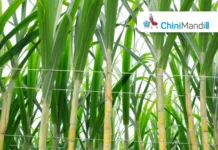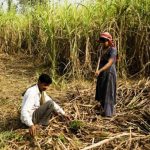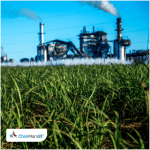The Pendulum
One of the most notable investors of the planet, deceased in 1976, was undoubtedly the Englishman Benjamin Graham, a Columbia Business School professor who had Warren Buffet, who inspired himself in the master when he repeated his main lesson – investing in valuable companies, as an illustrious student.
Graham wrote a book which is thought of as one the best in the area of finance: “The Intelligent Investor”. It’s worth resorting to one of his lapidary statements that I borrow and try to adapt to our sugar universe: “the market is like a pendulum that always fluctuates between the unbearable optimism (which makes prices go up irrationally) and the unjustifiable pessimism (which knocks down prices in the midst of the unreasonable panic).
Do you remember sugar after the pandemic breakout? It got down to less than 10 cents per pound. And what did most companies do at that moment? They did nothing. Everybody followed the crowd and left the rationality in some drawer. Very few managers looked at that moment with the greed of an opportunity hunter. Do you know how much July/2022 was trading at, two years ago? It was trading at a little more than 11 cents per pound. This was unjustifiable pessimism.
Many other examples can be given to illustrate how we followed the crowd. It’s the so-called belonging. There seems to be a human tendency not to disagree with the crowd, even when we are sure of what we see ahead. The market has reached more than R$2,500 per ton in the recent past, a value only surpassed by less than 2% of all the events over the past ten years, adjusted by inflation, but even so no argument has been good enough – unbearable optimism.
Now, the sugar futures market in NY has exploded this week, with the prices for all the maturities for the 2022/2023 crop in the Center-South going beyond the 20 cents per pound. Whatever might have happened?
First of all, there is a common sense that the crushing of the sugarcane crop in the Center-South will start later than previously foreseen and the mills should favor the production of ethanol at the start of the crop for reasons set forth in our comment last week. None of this was new. However, the macro setting (war in Ukraine, new Covid-19 variant in China) shows diffuse signs.
Some people think there might be a shortage of any commodity and/or logistics issues that will prevent the product from flowing. Most markets are inverted, that is, the contracts with shorter maturity are trading above those with longer maturity, fed by the huge purchase of spreads by trading houses. Bear in mind that the spread is the manifestation on the futures market of the feeling projected by the physical market. Coffee, sugar (the two first maturities), oil (WTI and Brent), cotton, oat, soybean, soybean oil, soybean meal, wheat, among others, are inverted in practically every maturity.
Sugar notably reflects the fear some market traders have been showing privately that there might be not only smaller sugar availability at the start of the crop but also a growing demand for wash-out of contracts of export sugar by the mills aiming to take advantage of the best ethanol profit. Let’s wait and see.
However, it should be noted that ethanol has exploded on the domestic market having been traded at R$4.3500 per liter. It’s interesting to see how the distributors don’t notice this movement that was out there, written all over the wall, in the smoke signals of all tribes and suddenly… BOOM!
To contradict this enthusiasm of the ethanol market, it is good not to forget that the oil parity today is zero while the foreign market has gone back to 100 dollars per barrel. Some exogenous event will be necessary so as to withstand the current price levels beyond the start of the crop. Not only Brazil but also Central American and Asia are fixing sugar prices that have been benefited by the vision of what is happening on the hydrous domestic market. Nothing that is happening on the sugar consumer market, however, is encouraging.
I believe that we need a couple of weeks to better understand this movement. On the other hand, our second sugarcane production estimate for the Center-South for the 2022/2023 crop has been reduced to 552 million tons (previously: 555). We have reduced sugar production from 33,792 to 33,000 million tons and reduced ethanol production to 28,368 billion liters (previously: 28,611), being 102 million liters of anhydrous and 141 million liters of hydrous. Nothing too worrisome, but it is a downward bias.
The real closed out the week slightly lower against the dollar: R$4.7100 against R$4.6650. As the sugar market closed out the week at 20.35 cents per pound, an appreciation of almost 100 points in the week (22 dollars per ton), the average value of the sugar closings for 2022/2023, already converted by the interest rate curve, increased more than R$120 per ton in the week. Spot closed out at R$2,200 – 1% above the price average of the mills’ fixations.
About the dollar, the chief economist of BV Bank, Roberto Padovani, believes that “there is a lot of optimism on the foreign exchange market. Just as in the second semester of 2020 and mid-2021, the start of this year has been characterized by a sharp appreciation of the Brazilian currency. The risks ahead, however, suggest that the downward trend of the dollar might be running on empty. The idea is that only domestic interest rates are not enough to make up for the pressure on the currency caused by high foreign interest rates, global strengthening of the dollar, smaller foreign growth and increase in domestic risks”. It’s a good idea not to fall in love with the real.
Finally, last week, this comment brought on its last line a quote by an executive in the sector who foresaw that “today in Brazil tomorrow is long term”. He hit the nail on the head. We praised the nomination of Adriano Pires for the presidency of Petrobras, which went over well on the market. However, he ended up refusing the invitation and another name should be assessed by the company’s Board next week.
To read the previous episodes of World Sugar Market – Weekly Comment, click here
To get in touch with Mr. Arnaldo, write on arnaldo@archerconsulting.com.br












